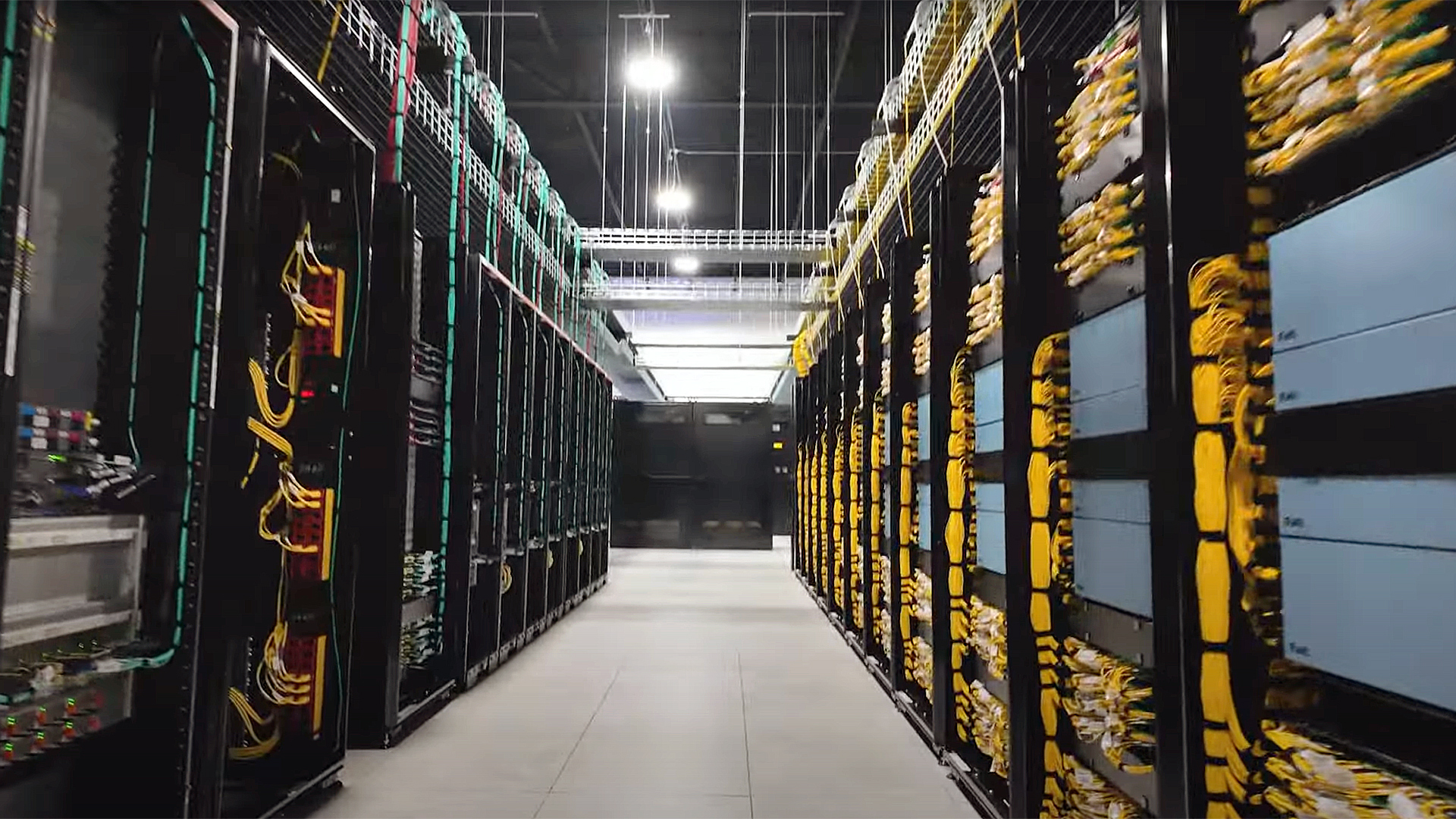Open AI, Oracle, and SoftBank to invest $500 billion in 'Stargate' AI project
Stargate set to create 100,000 jobs in America.

The United States is set to receive up to $500 billion in private sector investment for artificial intelligence infrastructure from Stargate, a joint venture led by Open AI, Oracle, and SoftBank, the U.S. President Donald Trump announced on Tuesday, reports Reuters. The three companies intend to build 20 huge datacenters and create 100,000 jobs in the U.S.
This announcement follows a report from March 2024 detailing a $100 billion data center project by OpenAI and Microsoft, also named Stargate. Whether this is a continuation or a separate initiative remains unclear.
Stargate's owners – Open AI, Oracle, and SoftBank — have already allocated $100 billion for immediate use and the remainder planned over the next four years. Stargate will build 20 datacenters, each measuring 500,000 square feet (46,450 square meters), according to Larry Ellison, chief executive of Oracle. Construction of the first datacenter has already started in Texas, according to Ellison, though it is unclear whether this is an Oracle datacenter that will be transferred to Stargate. Keeping in mind that Oracle is based in Texas, it is possible that the company may construct a datacenter there too. However, Oracle Cloud Infrastructure (OCI) has not publicly announced plans to build its datacenters in Texas.
The datacenters will power advanced AI, including artificial general intelligence (AGI), and provide applications for specialist tasks such as helping healthcare providers analyze health records.
Investing $500 billion in 20 datacenters with adjacent infrastructure means that each datacenter will cost around $25 billion, which is a significant figure. It remains to be seen how much money will hardware companies like Nvidia, AMD, Intel, Dell, HPE, and Lenovo will get by supplying their parts to datacenters but it is safe to say that they will get tens of billions of dollars over the course of the next five years, which is huge money even for Nvidia.
The announcement featured top executives: OpenAI's Sam Altman, Oracle;s Larry Ellison, and SoftBank’s Masayoshi Son. They credited Trump's leadership for facilitating the project. In particular, Trump's decision to roll back a prior executive order by Joe Biden, aimed at curbing AI risks, was framed as pivotal. Also, the current administration promised to simplify power production processes to meet the high electricity demands of AI datacenters that tend to employ hundreds of thousands of power-hungry GPUs. Altman noted that achieving artificial general intelligence domestically would not have been possible without the new administration's support.
Get Tom's Hardware's best news and in-depth reviews, straight to your inbox.

Anton Shilov is a contributing writer at Tom’s Hardware. Over the past couple of decades, he has covered everything from CPUs and GPUs to supercomputers and from modern process technologies and latest fab tools to high-tech industry trends.
-
bit_user Oh great. If AI hasn't already been pushing up chip prices and stalling node advancement of mass market CPUs & GPUs, this surely will!Reply
Also, (no lie!) I read the following:
The article said:Altman noted that achieving artificial general intelligence domestically would not have been possible without the new administration's support.
As "... artificial general intelligence doomsday ..."
I thought: well, at least someone has a sense of humor. I credited Anton, not Altman, for that.
Not sure if I'd rather he actually said that. At least it'd give a sense of self awareness that's usually good when humans have it.
🙄 -
bit_user Also, if they're hoping to recoup some of that massive investment by selling services to people and businesses outside the US, those customers will need to trust that they're not going to wake up some day to find that they've been cut off, due to a trade war (or some other reason), between their country and the USA. Trust is a hard thing to regain, once lost.Reply
And if they're not going to export these services, then it means they're probably looking to make at least ~$2k per capita on the backs of US business & consumer. That's a big bet and potentially a heavy burden. For instance, like this?
https://www.tomshardware.com/software/microsoft-office/microsoft-365-sees-43-percent-price-hike-thanks-to-copilot-existing-customers-safe-until-renewal -
Findecanor No mention of how much CO₂ this is going to spew into the atmosphere.Reply
Are these data centres supposed to replace human workers once they have died of starvation , after climate change has wrecked food production across the world?
That's the only thing in this story that would make sense.